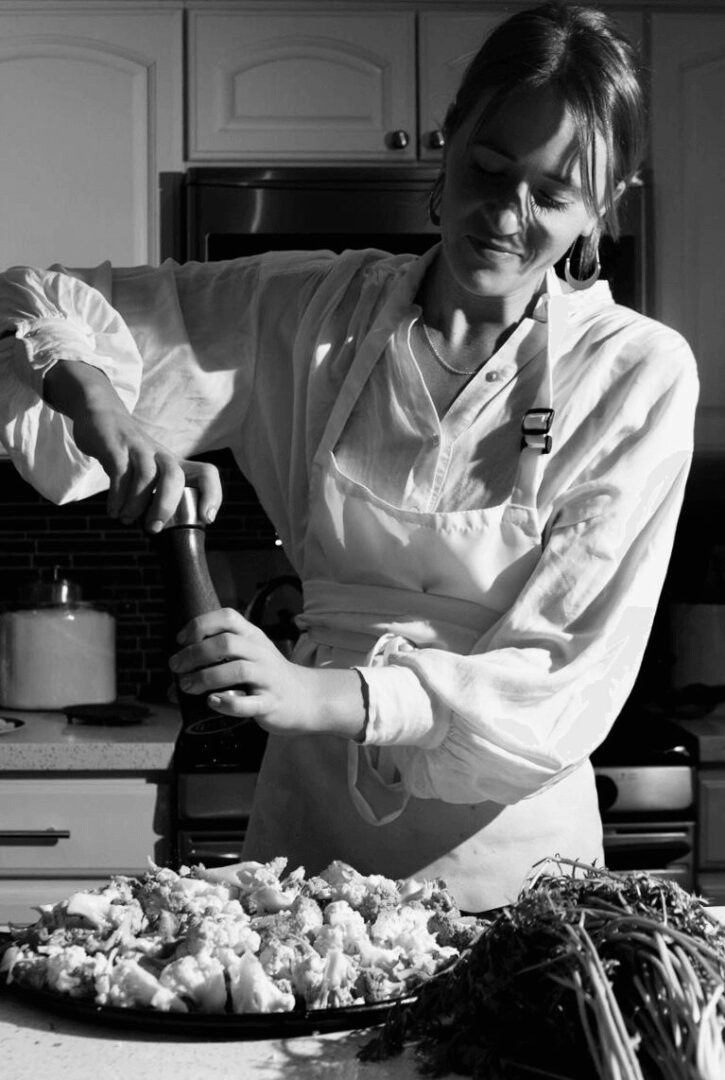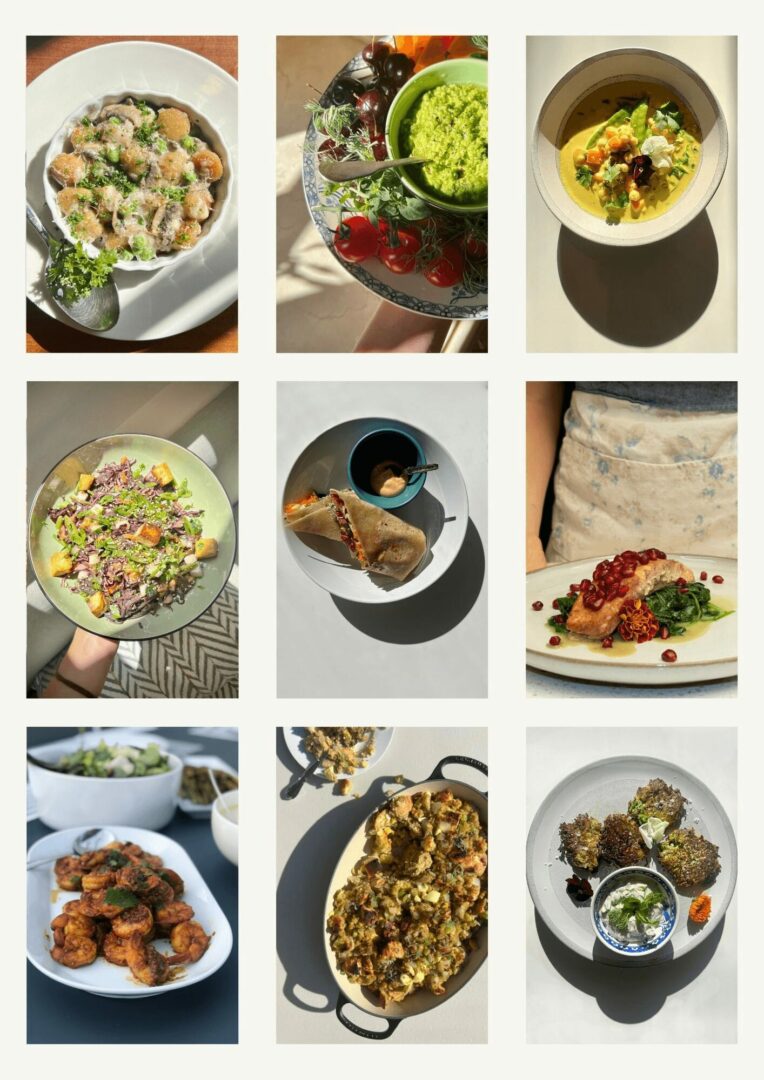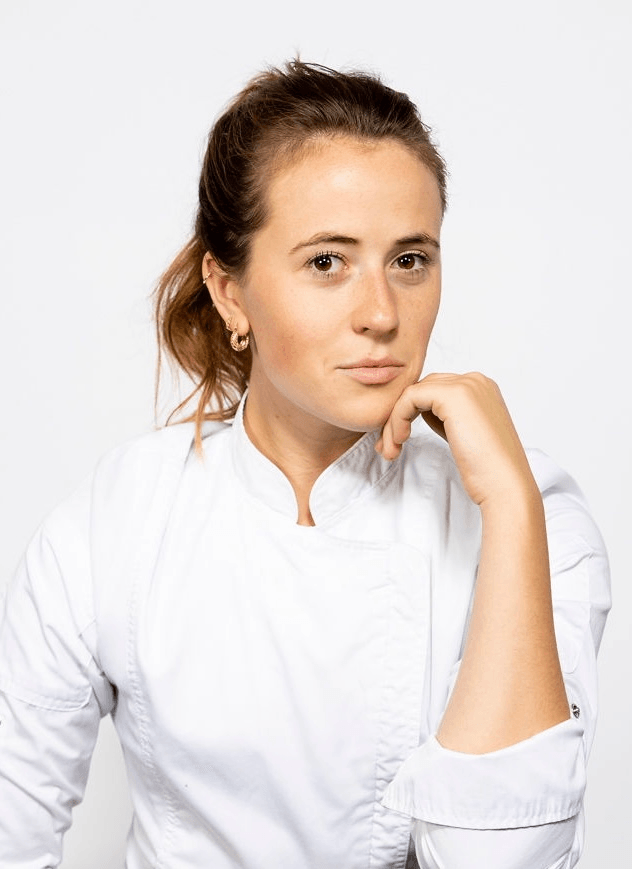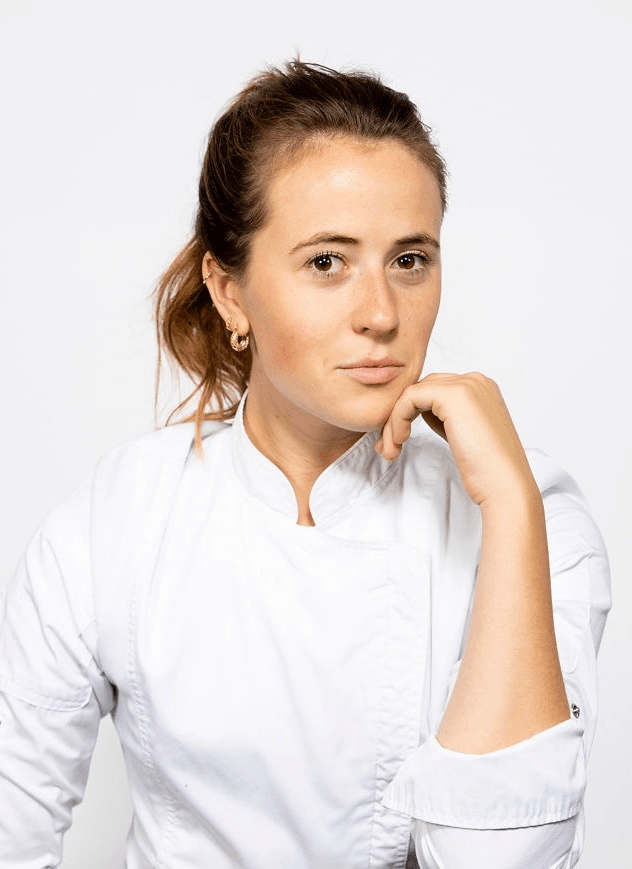We were lucky to catch up with Amanda DeLaura recently and have shared our conversation below.
Amanda, first a big thank you for taking the time to share your thoughts and insights with us today. I’m sure many of our readers will benefit from your wisdom, and one of the areas where we think your insight might be most helpful is related to imposter syndrome. Imposter syndrome is holding so many people back from reaching their true and highest potential and so we’d love to hear about your journey and how you overcame imposter syndrome.
This is a good one! Especially for a private chef, who typically works all alone all day, every day.
Being a private chef is one of the most intimate jobs in my industry. You are in someone else’s home. You know when they wake up, when they leave the house, when and where they’d like to eat. You know what they like to eat, what they hate and I joke, you even know when they poop. It’s true; it’s intimate. And with that intimacy, comes great responsibility and great trepidation.
Cooking for others is an incredibly vulnerable task; you must plan the perfect menu, shop for the perfect menu and then execute the perfect menu. Every step of the process is on you, as the artist, and afterwards, you have to then watch your client eat what you have served them – listening, watching and responding to their reactions. If you like something, you know it. If they don’t, you also know it.
I entered the world of private cheffing after only working in a restaurant for a cumulative two years. I was 22 and found myself working for a world re-known musician in Malibu, CA. Since day one, I have struggled with imposters syndrome…”why am I here? Why are they paying this much? Am I working hard enough for what they’re paying me? Is my food good enough? Do I conduct myself well enough in their home? Am I too young? I need to learn more…” Due to these massive insecurities, I’ve almost walked away from the culinary industry and quit my job twice.
But over the course of three years with multiple clients and in dozens of locations across the globe, I’ve learned that there are several things that have quieted the voices in my head. 1) Practice does make perfect. It’s cheesy but true. It’s taken many hours under my belt to finally gain a sense of confidence and belonging in my work. The more meals I make, the less insecurity I possess. 2) Be vulnerable. Be honest and specific with yourself about what you feel insecure about. Research those things, become confident in those elements. Talk with those you trust. Build connections with other private chefs, , find the people that get the struggles you’re going through and build a sense of camaraderie. In a world in which community hardly exists, strive to create some source of understanding and connection. We outsource our sanity. Once we share what we are really thinking and feeling, those thoughts become so much smaller in our head. 3) Last but not least, remember that if you didn’t belong wherever you are, you wouldn’t be there. I remind myself constantly that my level of clientele would not have me in their home, if they did not want me there. They are not messing around. I am not their charity project. They don’t just put up with my services. They clearly want me and will keep me for as long as they want me. If they didn’t want me, I wouldn’t happen to be there.

Appreciate the insights and wisdom. Before we dig deeper and ask you about the skills that matter and more, maybe you can tell our readers about yourself?
I am a private chef and I value the role food has in our society as a means to both nourish individuals with whole-foods based cooking and connect people around the table in a vastly, physically detached generation. Food can be a source of nourishment and empowerment and I take joy in creating room. Whether you are vegan, gluten-free, pescatarian or predisposed with diabetes, I strive to create food that is nutrient-dense, delicious and enjoyable for all who are seated at the table. I’m currently located in Houston, TX where I enjoy cooking for small dinner parties and boutique events. Beyond cooking for other’s, I have a huge love fore cheesecake, social dancing and the beach.

Looking back, what do you think were the three qualities, skills, or areas of knowledge that were most impactful in your journey? What advice do you have for folks who are early in their journey in terms of how they can best develop or improve on these?
Be friendly. Find needs. Work diligently.
You have to be comfortable in your skin to be a friendly person. But it’s very important to be kind and gentle with those that you meet. Every time I meet someone new, I never know where that connection could lead. I’m not saying you should try to win over or manipulate everyone you meet, but you must be a kind person and open to what the future holds. People want to be around pleasant people who make them feel better. I have had some of the best clients because of crazy connections I made months or years in advance.
To be successful in any realm of work, you have to find needs and fill them. And fill them well. The biggest level of being a successful private chef is finding needs before your client needs them and filling them as they need them. This often means you have to be attentive to details… Having the coffee made before they ask for it. Knowing that they’re about to be done with a heavy workout and probably want a post workout snack and you should have ready for them to grab on their way to the shower, etc. You must fill in the details, which you means you must constantly be looking for data to absorb. Be attentive. Note successes. And don’t beat yourself up when you’re not successful. Quickly adapt when something doesn’t go accordingly. Lastly, know that you must leave your ego at the door. As a private chef, it does not matter what you want to make your clients or how you want to make it. It does not matter if you have a new recipe to try or if you think a certain meal will feel better. Their needs are what matter. And you must satisfy those needs, hopefully making their life at least 1% better by the end of the day.
Being diligent means you must have a certain level of self control and consistency. I constantly strive to create systems in my work so that I know how to hold myself accountable. I am my own boss, which comes with high standards. For instance, I know that every time I empty a dishwasher, I fill it up with soap so that the next time I load it, it’s ready to start, removing as little resistance in my work as possible. I also know that every time I finish a dinner party, I have requirements for me (and my staff) before I leave: the floor must be swept, the trash emptied and the counter wiped. You get it. Diligent work in the small details creates big success in the bigger picture. In what ways you have lacked in consistency within specific disciplines of your work?

As we end our chat, is there a book you can leave people with that’s been meaningful to you and your development?
“Essentialism” has played an incredible role in my professional development. I was totally worn out and overwhelmed in 2021 when I took all and every business that came to me – meal prep, dinner parties, baked goods, food delivery, live-service dinners and etc. I did not have a niche and I say YES to everything. “Essentialism” broke down every element of my professional career and taught me to seek what actually a mattered. What clients did I want? What business did I want? How were I to conduct myself on days off and days on? And how was I to get rid of all the bull crap that was distracted me every single day?”
Contact Info:
- Website: https://www.amandadelaura.com
- Instagram: @chefdelaura
- Linkedin: https://www.linkedin.com/in/chefdelaura/

Image Credits
Angela Ferdig
so if you or someone you know deserves recognition please let us know here.




